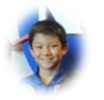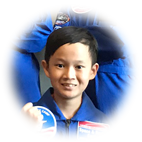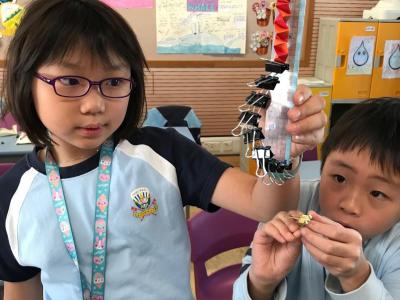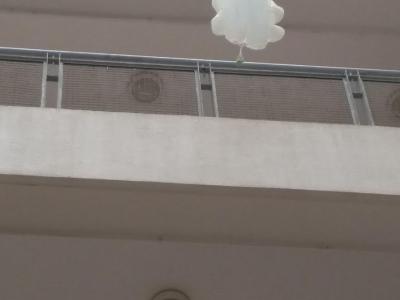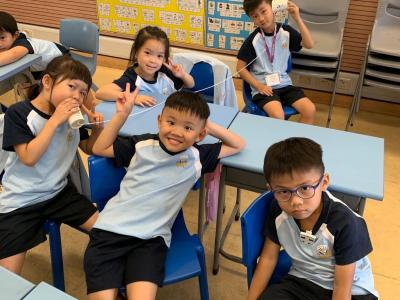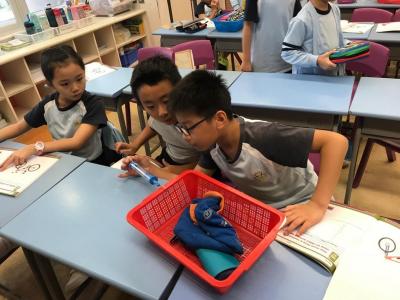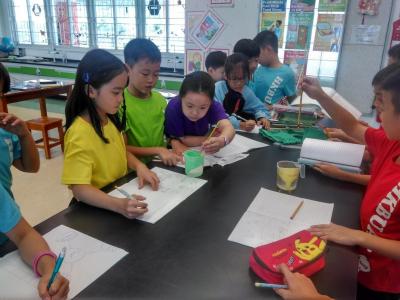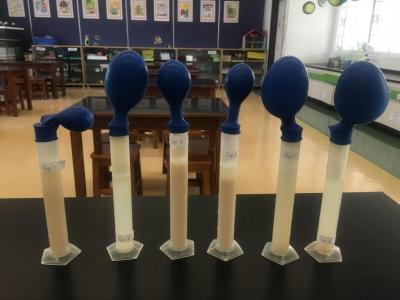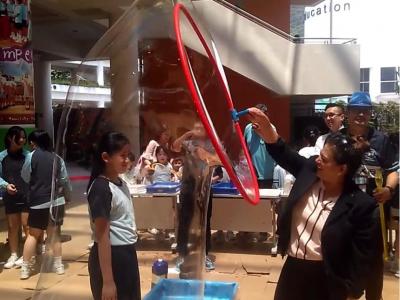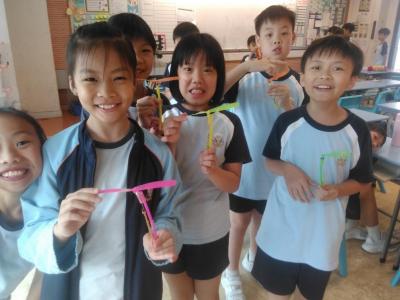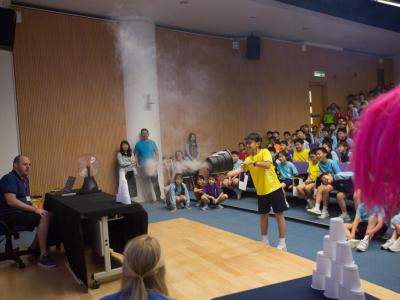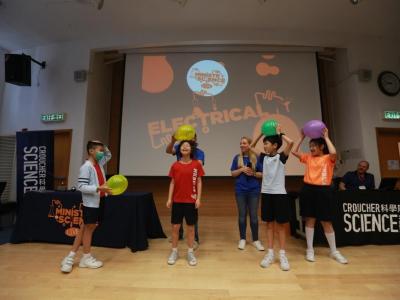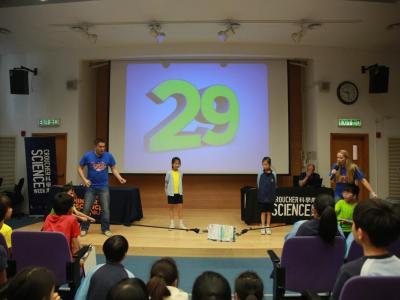Integrated Science
Curriculum Objectives
Integrated Science focuses on developing students’ scientific habits of mind and skills of inquiry and design. Through experiments and hands-on activities, students learn scientific concepts and processes in addition to developing generic skills.
In the lesson, students will
- engage in the process of inquiry and design;
- conduct hands-on investigation and learning activities;
- acquire and apply scientific and technological concepts;
- develop a serious attitude towards science and technology in connection to our dynamic society.
Curriculum Framework
We use the Cambridge Primary Science Curriculum, which is related to the National Curriculum for England. It provides a comprehensive set of learning objectives that describes what students should know and can achieve in primary science education.
The Integrated Science curriculum in each grade covers different domains which are Physics, Chemistry, Biology and Scientific enquiry.
Assessment
The purpose of assessment is to enable students to develop and demonstrate their potential. More specifically, we expect the assessment to:
- assist students’ learning by providing appropriate feedback on performance;
- measure students’ achievements objectively against the learning outcomes of modules;
- provide a reliable and consistent basis for the recommendation of an appropriate grade or award;
- assist the teacher in evaluating the effectiveness of their teaching.
The types of assessments are diverse. It can be a written assessment, a project or a presentation. The basic principle is that the type of assessment adopted can reflect how students achieve the learning objective of a particular topic. Formative and summative assessments will be included in this subject.
Homework Policy
The purpose of assigning homework is to extend and consolidate students’ learning and deepen their understanding and construct knowledge. Teachers will provide sufficient guidelines and time for students to complete homework.
Students’ Achievement
We encourage our students to join the Junior Space Camp Programme every year. Around 8 junior astronauts are selected from more than 2,000 applicants to undergo a nine-day simulated astronaut training at the two overseas space camps located in Huntsville and Florida. We have got 3 junior astronauts since 2010.

